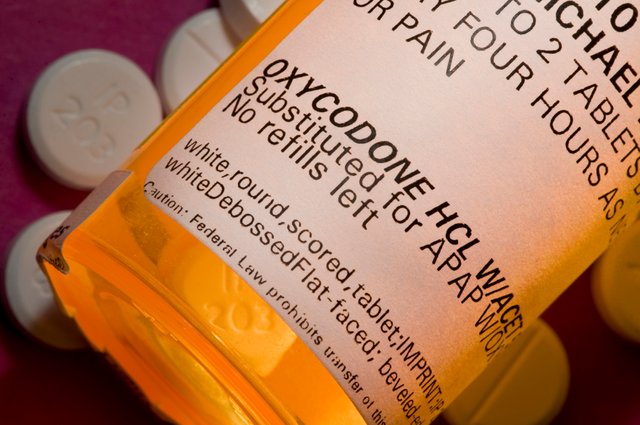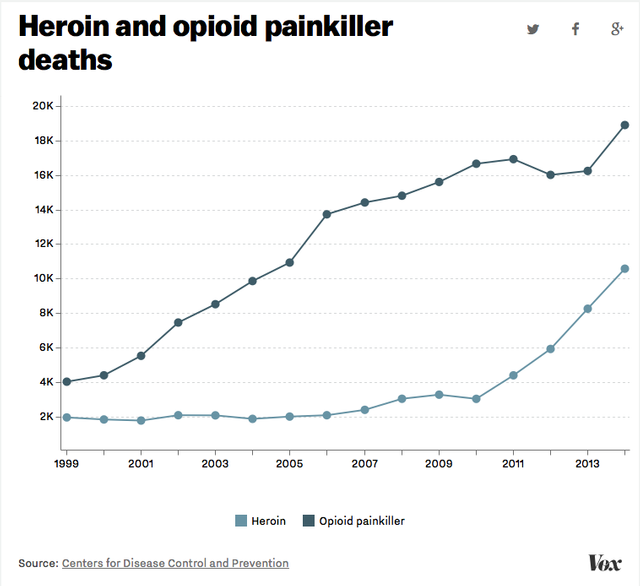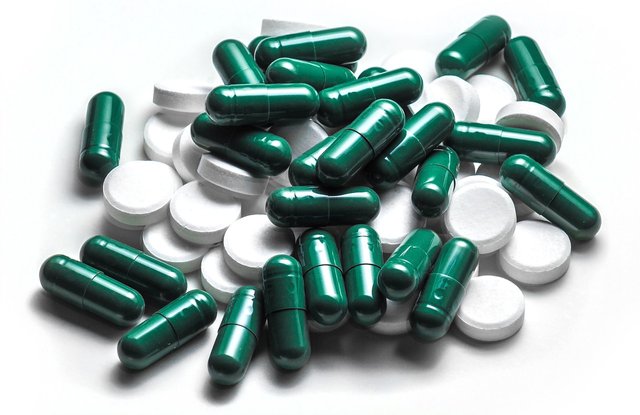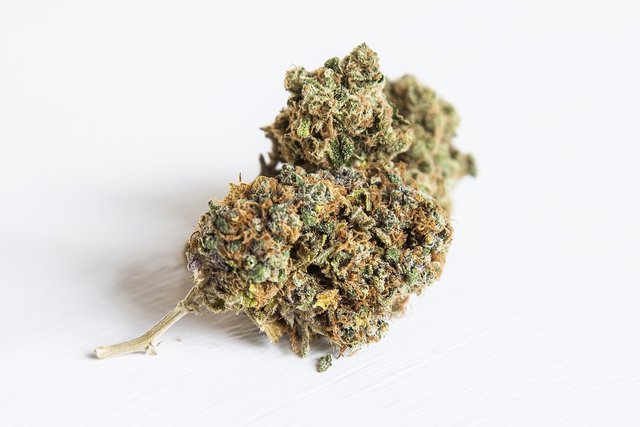Is The Government Making The Opioid Crisis Worse?

Opioid abuse is said to be one of the biggest issues that is facing the health industry today in the US.
And some are starting to criticize the government as being the biggest part of the opioid problem, daring to suggest that they might not be the solution to the problem.
In 2015 it's estimated that there were over 50,000 deaths due to a drug overdose; more than one third of adults in the US were prescribed an opioid medication during that year.

Even though the government has spent billions of dollars on the problem, and countless hours of work have been conducted from law enforcement around the country, illegal drugs appear more readily available than ever and there is no shortage of addicts.
To many, it appears that the war on drugs has failed and criminology experts, among others, maintain that the War on Drugs has been counterproductive in addressing the opioid crisis. They argue that it has fueled problems like the creation of counterfeit opioid medications; leading to a rise with drugs being laced with things like fentanyl.

Other issues with government involvement have been moves from the government to encourage pharma companies to create tamper-resistant opioid prescriptions which is supposed to prevent users from being able to crush and snort the pills. What did they turn to instead? They started boiling and injecting the drugs, which is an effective way to spread hepatitis C and HIV.
Some studies indicate that efforts from the state to aggressively monitor health care providers and their actions to give out prescription opioid medications, has in-turn pushed individuals to seek to access the illegal market.
Seeing as their contributions have done little to curb the problem, perhaps it is time for the government to step out of the equation; turning the situation from a criminal one to a matter for healthcare professionals.
Lawmakers in several states around the US, like Ohio and Mississippi, have already looked to point the finger of blame at pharma companies and they've sued a number of big pharma corporations for their alleged contribution in the opioid crisis. Those companies are well-known names like Johnson & Johnson, Purdue Pharma, Teva Pharmaceuticals, and others.
A Solution With Cannabis..

A study that was published several months ago, in Clinical Psychology Review, suggested that cannabis might be a solution to issues such as drug addiction and alcohol abuse. It's no surprise then that we would find alcohol and drug companies spending hundreds of thousands of dollars on anti-cannabis drug policy. They don't want to lose billions of dollars if more people decide to turn to cannabis rather than purchasing their products (alcohol or pharma pills etc).
According to one study that was published in Cannabis and Cannabinoid Research, a majority of patients would prefer cannabis over their opioid medication. The results from that study found that about 93 percent would prefer cannabis to their opioids; patients will use less of their opioid prescription when they also have access to cannabis.
Cannabis has helped millions of patients to seek relief from their symptoms and cannabis doesn't provide a host of negative side effects like Opioid medications do; there has never been one death that was caused from an overdose of cannabis.

Pics:
Education Images/UIG via Getty Images
CDC/VOX via medicalcannabisreport.com/one-way-to-fight-the-opioid-epidemic-medical-marijuana/
Pixabay
Pixabay
The information that is posted above is not intended or implied to ever be used as any substitute for professional medical advice, or diagnosis or treatment. The above is posted for informational purposes only.
Sources:
https://www.wsj.com/articles/government-opioid-abuse-1501542119
https://www.theatlantic.com/health/archive/2017/07/government-panel-calls-for-a-state-of-emergency-on-opioids/535485/
https://www.usatoday.com/story/opinion/2017/08/01/opioid-government-problem-not-solution-editorial-debates/527160001/
https://www.statnews.com/2017/07/31/opioid-emergency-declaration/
https://www.thestar.com/news/world/2017/07/15/makers-of-oxycontin-percocet-sued-by-us-governments-over-opioid-crisis.html
http://www.reuters.com/article/us-health-opioids-prescriptions-idUSKBN1AG2K6
Related Posts:
5 Big Pharma Companies Sued Over Their Contribution To Opioid Crisis
Cannabis Could Help With Alcoholism And Opioid Addiction, New Study Says
Big Pharma Funding Cannabis Opposition
https://steemit.com/cannabis/@doitvoluntarily/big-pharma-funding-cannabis-opposition
Just look at the spike in heroin addiction after the army took control of poppy fields in Afghanistan, then join the dots
... nuff said ...
Hahaha so much truth in it!!!
Corey Booker is supposedly about to propose legislation for the federal legalization of marijuana. The reduction of tabacco seems to indicate a shift towards biological/synthetic production of nicotine whereby cropland can be devoted to either hemp or cannabis production. Though I'm under the impression pharma will lobby for high sativa strain availability or some form of adulterated gmo hemp.
I read it, but I didn't need to. Any time the question is asked, "Is the government making [insert any problem in the world here] worse?"
THE ANSWER IS YES.
Great post brother. Keep up the good work and STEEM ON!
Yes and no. It is definitley harm reduction, but there is a big black market here where I live. For a lot of opoid addicts cannabis is no solution. Some getbrid off it with dronbinol. For some ibogain helps.
their actions have increased harm rather than reduce.
I agree, I wish we could stop fighting symptoms and fight the actual causes....
I disagree, an imbalance in the endocannabinoid system is often at play within those with opiod addiction. Cbd however and hemp consumption is what is required for medical relief
The government trying to stamp their foot down seems to have made everything worse and that is what tends to happen when a state gets involved. Different things are prohibited and precautions are taken but that also leads to flaws in health and safety as people try to work around the law doing more dangerous things.
That's why they have the military in Afghanistan to maintain a steady supply of opium my friend, cheers.
And what of allowing columbians to produce as long as they do not interfere with coconut and cattle production while north korea threatens hawaii and duterte restricts access in the phillipenes? Atleast there is florida... Right? I do wish the 95% of us could see some more benefits as pharma and the military rake in their hundreds of billions
Doctors and their legally prescribed pain killers are the source of more than half the addicts of opiates today. I've had a detox staff tell me that fact face to face.
My wife's pain management doctor charged 800 dollars a visit too.
Is there any mystery why they get their patients addicted therefore? They are unethical monsters preying on people's genuine desire to stop pain. Doctors profit from getting you addicted, and different doctors profit from your detox (assuming you're alive and can afford it).
Naturally, the inexpensive good alternative is illegal however, and how dare we medicate ourselves for pain?!
P.S. Thanks for posting this! It has been upvoted and resteemed.
This post has been ranked within the top 50 most undervalued posts in the first half of Aug 01. We estimate that this post is undervalued by $12.20 as compared to a scenario in which every voter had an equal say.
See the full rankings and details in The Daily Tribune: Aug 01 - Part I. You can also read about some of our methodology, data analysis and technical details in our initial post.
If you are the author and would prefer not to receive these comments, simply reply "Stop" to this comment.
The government's complicity in the problem stem's from it's implementation of Medicare Part D which subsidized prescription medications. I'm sure it was completely by accident that the drug companies then incentivised doctors to over prescribe opiods.
Not to worry though Chris Christie has called for the government to step in and solve the problem, with more government spending.